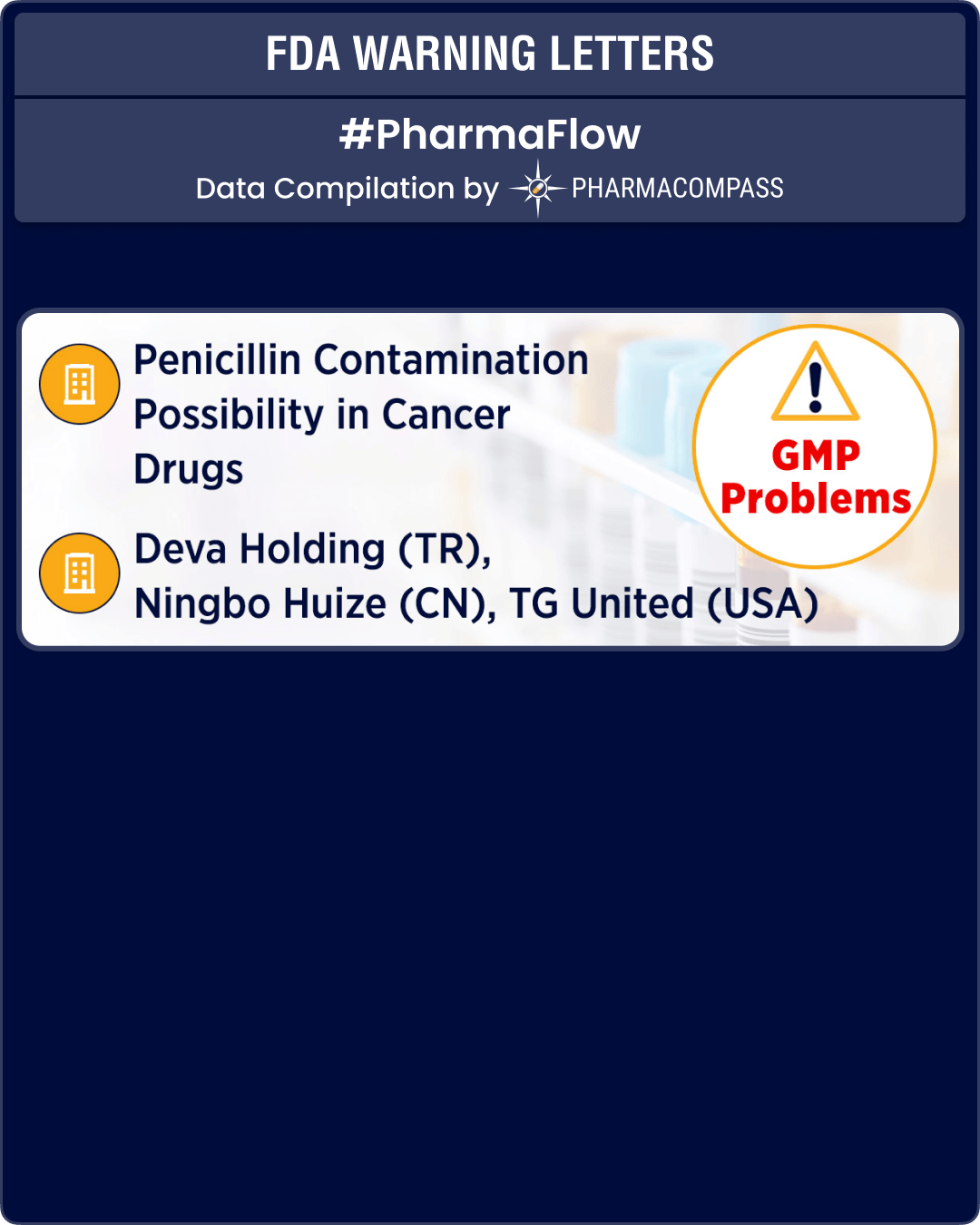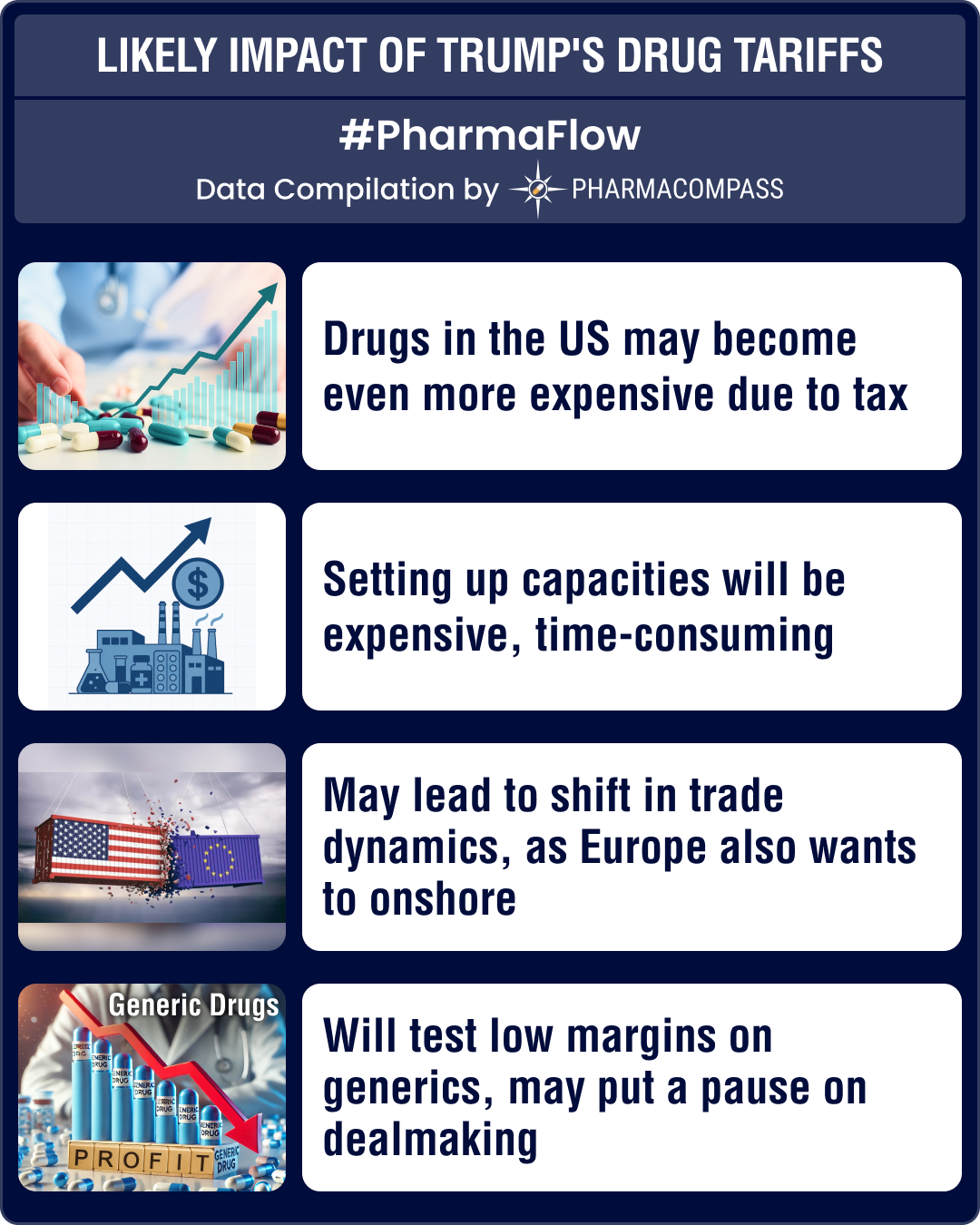
By PharmaCompass
2019-08-22
Impressions: 2051
Last week, the US Food and Drug Administration (FDA) had issued a warning letter to Lantech Pharmaceuticals in India, a contract manufacturer for companies like Aurobindo Pharma, as its cleaning practices had created a potential for all products to contain cancer-causing nitrosamines through mix-ups.
This week, the US agency had similar compliance concerns to share — this time over the possibility of penicillin contamination of a cancer drug made in Turkey.
The FDA issued a warning letter to Deva Holding in Turkey after a February 2019 inspection of their finished formulation manufacturing facility. Based on the findings of the inspection, the firm had been placed on import alert last month.
Moreover, multiple lots of its chemotherapy medication — temozolomide capsules — were recalled as they may have been cross-contaminated with beta lactam products (such as penicillin) during manufacturing.
The FDA guidelines mandate the separation of the manufacture, processing and packaging of beta lactam products as contamination of non-beta-lactam drugs with beta-lactam drugs (such as penicillin) presents great risk to patient safety, including potential anaphylaxis and death.
The warning letter said: “No safe level of penicillin contamination has been determined to be a tolerable risk. Severe allergenic responses can occur in susceptible patients exposed to extremely low levels of penicillin and other beta-lactams.”
Penicillin
detected throughout campus
Deva manufactures its drugs on two campuses in Turkey — Cerkezkoy 1 (CK1) and Cerkezkoy 2 (CK2) — that are around a quarter of a mile apart. The CK1 campus manufactures various products, including penicillin and non-beta-lactam drug products. However, the presence of penicillin was detected throughout the CK2 campus (outside the penicillin manufacturing areas) — approximately 103 times in 2017, 44 times in 2018, and nine times in 2019 (until June 2019).
Penicillin was also detected in common areas, including dining areas, that are accessible to employees working in both the penicillin and non-penicillin manufacturing areas.
During the inspection, an employee, who performed a dissolution testing demonstration, was observed to have a stain on her clothing that was tested after she returned from a break in the common dining area in the CK1 campus, which manufactures various products including penicillin.
The test led the FDA to conclude that it is “unacceptable to have common areas where employees exposed to beta-lactam drugs are not isolated and separated from other employees manufacturing non-beta-lactam drugs.”
The FDA also raised concern over the firm failing to test its non-penicillin drug product for the presence of penicillin despite the known possibility of cross-contamination with penicillin.
Warning
letters to Ningbo Huize, TG United
This week, the FDA also posted warning letters to drug manufacturers in China and the United States.
At Ningbo Huize Commodity Company Limited in China, the inspectors uncovered serious data-integrity violations as they were provided with multiple documents that were falsified “for the purpose of this inspection.”
At TG United in the USA, after an inspection that lasted almost two months, (from December 17, 2018, to February 15, 2019) the inspectors uncovered that the firm had failed to resolve current good manufacturing practices (cGMP) violations from past FDA inspections in 2010, 2012, 2014, and 2017.
TG United failed to properly conduct investigations, had an inadequate water system and questionable cleaning practices. The firm’s stability program was also not adequate to demonstrate the quality of its OTC drug products through expiry.
The PharmaCompass Newsletter – Sign Up, Stay Ahead
Feedback, help us to improve. Click here
Image Credit : FDA Warning Letters by PharmaCompass is licensed under CC BY 2.0
“ The article is based on the information available in public and which the author believes to be true. The author is not disseminating any information, which the author believes or knows, is confidential or in conflict with the privacy of any person. The views expressed or information supplied through this article is mere opinion and observation of the author. The author does not intend to defame, insult or, cause loss or damage to anyone, in any manner, through this article.”








